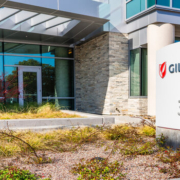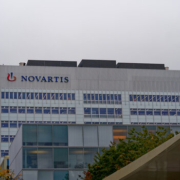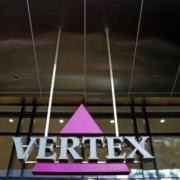UniQure wins first FDA RMAT in Huntington’s disease after strong Phase I/II data
UniQure wins first FDA RMAT in Huntington’s disease after strong Phase I/II data
Published: Jul 09, 2024
By Tristan Manalac
BioSpace
UniQure on Tuesday released updated Phase I/II data for its investigational gene therapy AMT-130, which significantly slowed disease progression in patients with Huntington’s disease.
With these promising 24-month data, uniQure also announced on Tuesday that the FDA has granted AMT-130 the first-ever Regenerative Medicine Advanced Therapy designation for Huntington’s disease.
As of March 31, 2024, 21 patients had evaluable 24-month follow-up data. Twelve of these patients received AMT-130’s lower dose of the gene therapy, while the remaining nine were assigned to the high-dose arm. Disease progression was measured using the composite Unified Huntington’s Disease Rating Scale and compared against a propensity-weighted external control group.
AMT-130 significantly slowed the progression of Huntington’s disease in a dose-dependent manner. After 24 months of observation, the higher dose of the gene therapy slowed disease progression by 80% relative to the external controls. This effect was statistically significant, with a p-value of 0.007, according to uniQure.
By contrast, those in the low-dose treatment arm saw a 30% slowdown of disease progression versus external controls, an effect that fell short of statistical significance.
CMO Walid Abi-Saab in a statement said that uniQure is “very pleased” with Tuesday’s readout, which point to the therapeutic potential of AMT-130 in Huntington’s disease.
“We believe this is the first clinical trial of any investigational medicine for Huntington’s disease to show evidence of a potential long-term clinical benefit and reduction of key marker of neurodegeneration,” Abi-Saab said.
In addition to slowing disease progression, uniQure on Tuesday also showed that AMT-130 led to a significant reduction in neurofilament light (NfL) levels, which dropped by 11% in patients’ cerebrospinal fluid, compared with the external controls. Both high and low doses of AMT-130 lowered NfL concentrations below baseline at 24 months.
In terms of safety, AMT-130 was generally well-tolerated with both doses yielding a manageable safter profile, according to uniQure. The Phase I/II study did not find any new serious adverse events associated with the gene therapy.
Stifel analyst Paul Matteis in a Tuesday investor note wrote that these data “broadly look favorable” for uniQure, particularly given the “backdrop of very low investor expectations for the program.” The company previously released data for AMT-130 in December 2023, touting its “ongoing evidence of potential dose-dependent clinical benefit.” However, investors were unimpressed and uniQure’s shares tanked 19% at the time in response to the readout.
Several questions remain for uniQure after its 24-month readout, including AMT-130’s 36-month performance and the results of its other endpoints, according to Matteis. “Ultimately though in the backdrop of an increasingly flexible regulatory environment for gene therapies, we think QURE has an upside-biased risk/reward” ahead of an FDA meeting later this year, he wrote.
The biotech also expects to complete enrollment into the third cohort of its Phase I/II study, which will assess AMT-130 combined with immunosuppression. Initial safety results from this cohort are expected in the first half of 2025.
Source: BioSpace





 BioSpace
BioSpace




